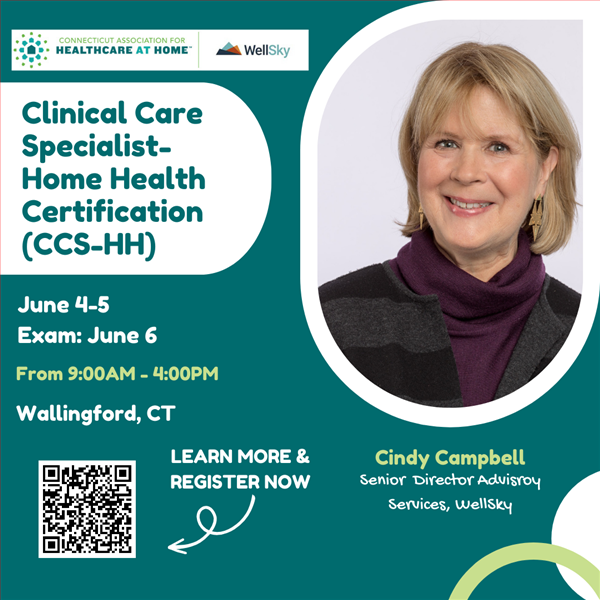 |
|||||||||||||||||||||||||||||
| March 14, 2024 | |||||||||||||||||||||||||||||
On Wednesday, March 6, the Public Health Committee held a public hearing to address a potential Nursing Licensure Compact with other states.
HB 5058 An Act Adopting Nurse Licensure Compact was voted favorably out of the Public Health Committee on Monday, March 11 and is now on its way to the House floor.
The Nurse Licensure Compact is an interstate occupational licensure compact that allows Nurses (both RNs and LPNs/LVNs) with the appropriate training to provide services to patients in other states who are party to the compact without the need to seek and secure licenses in each state in which they provide those services.
Tracy Wodatch submitted written testimony in support of this bill.
On Tuesday, March 12, the Human Services Committee held a public hearing to address HB 5459 AN ACT INCREASING RATES OF MEDICAID REIMBURSEMENT FOR CERTAIN PROVIDERS, a bill looking to implement the phase one recommendations of the Medicaid rate study.
Pres/CEO Tracy Wodatch and Board Chair Coco Sellman submitted written testimony to support the increases outlined in this bill and more importantly, to remind Human Services of the need to adjust HCBS provider rates now versus awaiting the Phase Two portion of the study where our providers’ rates will be reviewed.
For historic purposes, as a “managed fee-for-service” Medicaid program, Connecticut directly sets reimbursement rates and methodology for its providers. Pursuant to Public Act No. 23-186, DSS was commissioned a two-part study to examine Medicaid reimbursement.
Phase One was completed and reported to the legislature last month. This phase included many outpatient physician services including behavioral health. When possible, the rates were benchmarked to Medicare with the following anticipated findings:
Source: NAHC, March 11, 2024
The Centers for Medicare & Medicaid Services (CMS) is continuing to monitor and assess the impact that the cyberattack on UnitedHealth Group’s subsidiary Change Healthcare has had on all provider and supplier types. CMS recently announced that, in addition to considering applications for accelerated payments for Medicare Part A providers, we will also be considering applications for advance payments for Part B suppliers.
Over the last few days, CMS has continued to meet with health plans, providers and suppliers to hear about their most pressing concerns. As announced previously, CMS has directed Medicare Administrative Contractors (MACs) to expedite actions needed for providers and suppliers to change the clearinghouse they use and to accept paper claims if providers need to use that method. CMS will continue to respond to provider and supplier inquiries regarding MAC processes.
Source: NAHC, March 11, 2024
The Agency for Healthcare Research and Quality (AHRQ) released the 2024 home and community-based services (HCBS) Consumer Assessment of Healthcare Providers and Systems (CAHPS) chartbook. This chartbook includes data that was collected in the summer of 2023.
Source: NHPCO and NAHC
NHPCO and NAHC met with CMS last week with concerns over their outdated model Election Statement as posted on the CMS website and resulting record audit denials based on use of outdated form. As a result, CMS has updated their model statement which is now posted on the CMS website.
Source: NHPCO
CMS recently issued Change Request 13523, which updates the Medicare Benefit Manual to clarify that a Veteran beneficiary who elects hospice services under the Medicare benefit may still receive services that are not included in the hospice plan of care and are furnished and paid under the beneficiary’s VA benefits, in addition to hospice services.
Source: Decision Health, March 7, 2024
It’s important for agencies to get the authorization practice streamlined, especially with the increase of Medicare Advantage (MA) plans. An ability to navigate this challenge can make or break your success with alternative payors and put you in a better position to adapt as the payor mix continues to evolve.
Most MA plans require prior authorization, so this will increase the workload in the authorization department, stresses Ashley Michael, senior manager at SimiTree Health Care Consulting in Hamden, Conn. “Without this authorization, the MA plan is unlikely to pay for services,” she explains.
The authorization staff should be looking closely at these MA contracts to ensure prior authorization requests are handled appropriately. It isn’t one-size-fits-all. Each different MA plan is likely to have different requirements around authorizations.
|
|||||||||||||||||||||||||||||
| Past Issues | Subscribe | cthealthcareathome.org | Advertise with Us | |||||||||||||||||||||||||||||





